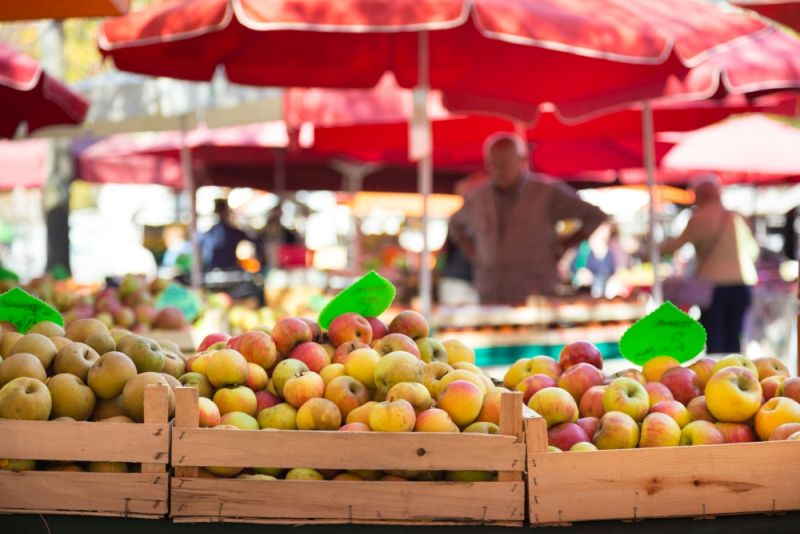
Councils have been told to set up “food resilience teams” to prepare for different Brexit scenarios amid concerns of supply disruption and border delays.
Several post-Brexit food risks have been highlighted in a new document released on Friday (30 November).
It highlights possible risks such as price changes, reduced food availability, lower standards and safety, supply disruption, border delays, freight logistics and public disorder.
European supply chains are a key part of delivering the goods that UK consumers buy every day. The majority of those goods are ones that need to be transported quickly, particularly food.
The UK sources roughly a third of its food from the European Union. However, every form of Brexit will affect the food system in some way, particularly a 'no-deal' scenario, according to the notice.
'Risk of social disorder'
The document has now been sent to every council in the UK. It advises that councils will have a role to play as the “local voice and ears” to help limit the “risk of social disorder”, which it says has been brought on by food supply problems in the past.
The advice has been written by food policy experts from City, University of London, University of Sussex and the Chartered Institute of Environmental Health (CIEH).
The briefing is the latest in the Food Brexit Briefing series from the Food Research Collaboration.
They suggest authorities should consider creating the food resilience teams to make risk assessments of how different outcomes of Brexit might affect food provision and supply in their local areas.
Food preparation
There is “wide agreement” within local authorities that some level of preparation for food supply after Brexit is both “possible and sensible”, according to the document.
The advice notice suggests food resilience teams should map existing food systems in their regions and conduct assessments of where risks and potential disruptions lie.
It urges councils to clarify the limits to stockpiling, bring together relevant professionals and be prepared to convey this information to the Government and public.
The notice highlights local authorities’ responsibility for the enforcement of food safety and standards regulation, with a scope ranging from school meals to imported and exported products.
'Map local food systems'
The food resilience teams should combine expertise from both within the authority and other experts, including NHS-based nutritionists and dietitians, the notice recommends.
Professor Tim Lang, of the Centre for Food Policy at City, said: “Setting up food resilience teams is something practical local authorities can do. These should map local food system risks and help set public protection priorities.”
Erik Millstone, Professor of Science Policy at the University of Sussex, added: “The impact of Brexit on food supplies will depend on where people live. Those furthest from Channel ports will be at greatest risk of shortages, which is important for local authorities because their locations will make big differences.”
The document says the Government’s recently-released technical notices for a no-deal Brexit are “welcome but inadequate” and warns that local authorities have not been given enough advice.
